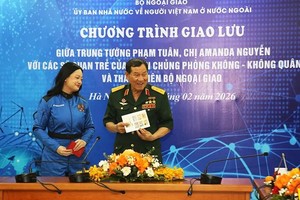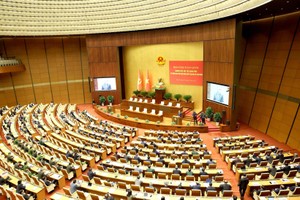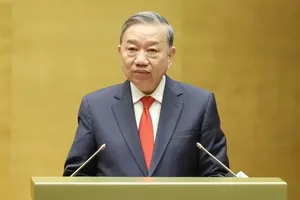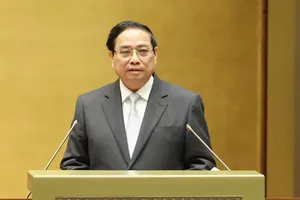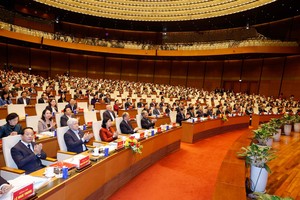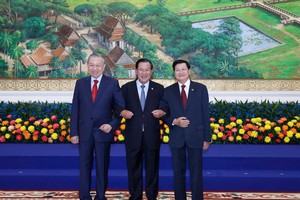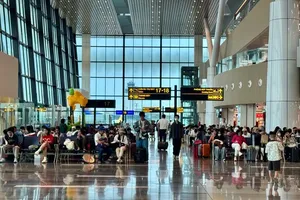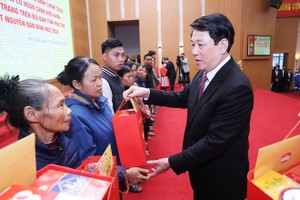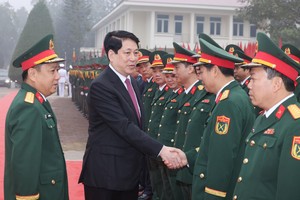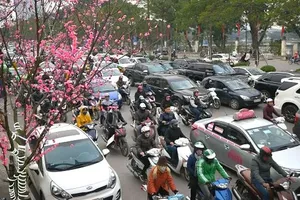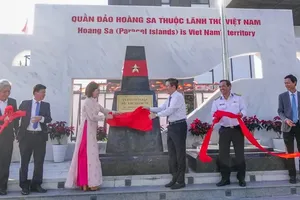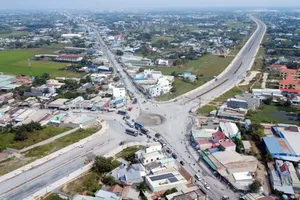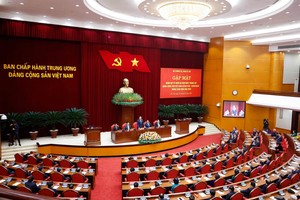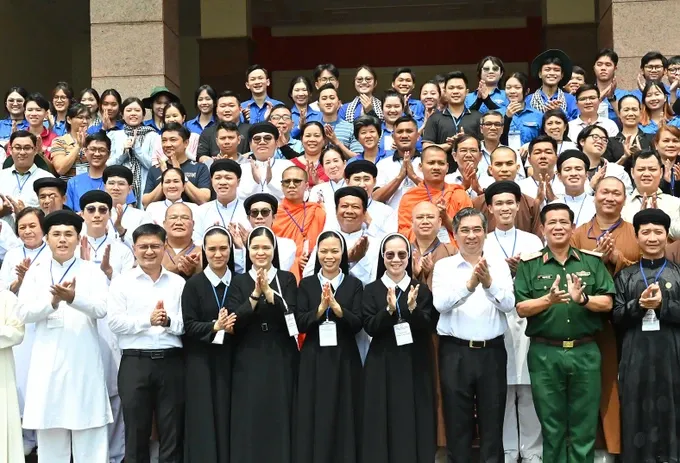
Perils of rewriting history
On TikTok, an account called “Hong Thai Hoang” has been spreading historical reinterpretation, claiming “The US has never invaded any nation” and “The US only engaged in military intervention in Vietnam”. These deceptively crafted videos have attracted significant attention online.
The danger of these “historical reassessment” arguments lies in their manipulation of language. By changing terminology, they blur the lines between right and wrong, diluting the responsibility of invasion. This can easily influence those without strong historical knowledge. Young people repeatedly exposed to terms like “intervention” and “protecting freedom” might begin questioning Vietnam’s anti-American resistance war.
In today’s digital landscape, distorted historical narratives no longer appear overtly propagandistic. Instead, they adopt youthful, relatable, pseudo-intellectual facades. “Military intervention” becomes a sanitized euphemism for invasion. One particularly treacherous tactic frames American aggression as an “international obligation” – misrepresenting an act that violated Vietnam’s sovereignty.
The US had no threatened interests in Vietnam and no citizens in danger. There is thus no legitimate basis for this “intervention”. Vietnam neither invited American forces nor had alliance treaties with them. Yet the US supplied weapons, trained soldiers, installed a puppet government, and deployed hundreds of thousands of troops, killing millions of innocent civilians. The devastated villages, bereaved families, and weaponry testing grounds stand as irrefutable evidence of invasion, beyond reasonable debate.
According to Phan Quoc Thieu, a lecturer at the National Defense and Security Education Center (Vietnam National University – Ho Chi Minh City), distorting the events of April 30 forms part of a sophisticated ideological war. Hostile forces deliberately twist the significance of the anti-American resistance war through deceptive arguments like “The US only intervened, not invaded” or “We won but are still poor, so what was the point of winning?”
These statements are not only historically false but strategically aimed at undermining younger generations’ faith and dismantling revolutionary achievements. Today’s silent war targets hearts and minds; hence, neglecting it risks national fragmentation. Protecting historical truth preserves the nation’s spiritual foundation.
History etched in national soul
The good news is that examining comments beneath “Hong Thai Hoang” videos reveals overwhelming rejection of these revisionist views. Many users have created rebuttals presenting clear, globally recognized historical evidence. Social media platforms feature abundant content celebrating the upcoming Southern Liberation and National Reunification Day, attracting widespread engagement.
Praises have recently spread on social media, directed toward young people selected to participate in the parade marking the 50th anniversary celebration.
One April afternoon found Deputy Head Nguyen Quoc Do of the Resistance Tradition Club of the Saigon - Gia Dinh Special Forces Bloc at the Saigon Special Forces Museum. He was sharing captivating stories about elite forces that orchestrated pivotal historical battles.
Established 42 years ago, the club prioritizes national tradition education, organizing compassionate initiatives, supporting members’ wellbeing, and engaging in social welfare. To foster historical understanding among younger generations, they regularly host exchanges with students across the city.
Vo Nguyen Hoang Da, a young parade participant from HCMC University of Physical Education and Sports, shared: “We’re youth of a new era – born and raised in peace. Participating in this parade brings immense pride. It’s not just about synchronized steps; each stride carries remembrance and gratitude for generations who sacrificed for independence and freedom. During the official parade, we’ll march with hearts ablaze with patriotism and national pride.”
Beyond enthusiastic youth, many parents offer unwavering support. At the training grounds’ edge, Le Thi Thuy intensely followed her son Du Phan Le Hung as he practiced with the children’s contingent. Her phone captured every moment, encapsulating maternal pride in simple frames. With training primarily scheduled for weekends, minimizing academic disruption, Thuy feels at ease. “On the official holiday, our whole family will watch my son and everyone in the parade – undoubtedly an unforgettable memory,” she said emotionally.
Driven by profound gratitude and national pride, every participant joins voluntarily, eager to contribute to the commemoration. This enthusiastic response directly refutes historical distortion attempts. History belongs to the people, who themselves shield against deliberate misrepresentation of April 30’s significance.
Mohamed Zakir Husain, Cham ethnic member of the parade contingent, shared: “Every weekend morning, we gather to practice. I’m deeply moved by soldiers’ dedication as they guide each movement, ensuring synchronized steps, flag-raising, and perfectly rhythmic hand waves. Our goal is to create a unified bloc embodying national solidarity. Though training is demanding, each of us is determined to make our performance beautiful and meaningful – a cherished memory etched into this sacred April 30 celebration.”
Nguyen Thi Nhat, a nun of the Lovers of the Holy Cross of Thu Thiem Congregation, added: “I feel immense joy participating in this parade. I’m touched by monks’ and nuns’ enthusiasm during practice sessions. When our movements aren’t uniform, the instructors patiently guide us. I feel blessed that our nation is peaceful and prosperous, with all ethnic groups united in harmony.”
